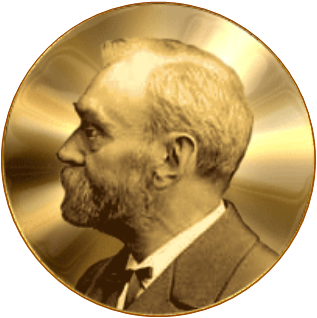 |
| Alfred Nobel. Source: Wikimedia Commons |
It looks like the decision from the Norwegian committee to award the 2012 Nobel Peace Prize to the European Union was very controversial after all. The critics of the decision state that the prize could have come at a worse time for Europe: economic disaster, a fear of the future, and a questionable form of solidarity. Daily Telegraph commentator Iain Martin, comments that "... when Greek protesters are wearing Nazi uniforms, and Spanish youth
unemployment is running at 50 per cent, a look at history suggests there
is always the possibility of a bumpy landing.". In addition he states that "Daftest of all is the notion that the EU itself has kept the peace. It
was the Allies led by the Americans, the Russians and the British who
defeated and disarmed the Germans in 1945."
It looks like Iain suffers from what I called Obsolete Illusions in this article one and a half months ago. In it although I somehow forgot to mention the vast amounts of nationalism which still haunts some of the English, I mentioned why each nation currently facing economic difficulties had reasons to look back to its past and have some sort of national pride. What many, including Iain, fail to see is that you cannot see the future looking back. Obviously, Britain and the US played an important role to the outcome of WWII. And yes it was German nationalists who began the war. Yet, educating ourselves from history and derive our prejudices from it are two very different things. (those who wish to associate economics with this should have a look at the definition of sunk costs)
True, things could have been better for the EU. The economy would have been greater had the Greek sovereign debt crisis not occurred. However, I have not heard of any voices from the UK opposing the Greek haircut. Was this not just because British banks had very little exposure to Greek debt?
They say that people are on the streets, protesting, and claim that this is not "peace". Yet, what is peace and democracy if people cannot express their opinions freely on the streets or wherever they see fit and make governments afraid of the people instead of people afraid of their governments? Protests are more of a sign of solidarity than anything else in the EU. What is more supportive than each nation in the EU-periphery protesting both for their rights as for the rights of their fellow Member-States? What would promote integration more than Spanish, Portuguese, Italians and Greeks protesting not only for themselves but for their ailing neighbors? Obviously extremes should be avoided yet still extremes will always exist.
As for wars in Europe? Have a look at Wikipedia's list of conflicts in Europe and let me know how many of the wars or conflicts had taken place after the nation had joined the EU. I think its none but those who doubt should have a look.
I would not, even for a minute, state that the EU is at its best. Yet, the future shall be brighter for us, even if it this means that things will get worse before they get better. More needs to be done to safeguard Europe and promote integration, in many areas. Nevertheless, the chance for destruction exists and it is up to us whether the chance will become a reality or not. As for me, I just hope it doesn't.

No comments:
Post a Comment